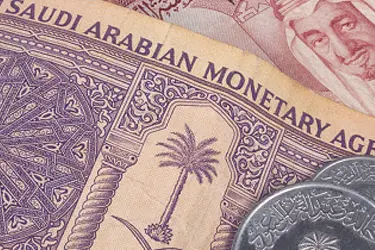PHOTO
DUBAI- Saudi Arabia's largest banks reported a drop in loans in the third quarter as credit growth stalled due to a weaker economy, potentially putting future profits at risk.
The seven largest banks reported an average drop in loans of around 4.9 percent at the end of September, compared to the same period of last year. Bank profit growth during the quarter has generally been in line with analysts' forecasts due to widening net interest margins and lower costs.
"If loan growth continues to be subdued, the growth in profitability would be difficult to sustain," said Shabbir Malik, a banking analyst at EFG-Hermes.
"In a weak loan growth environment, there is a limit to how much NIMs (net interest margins) can improve due to tailwinds from rising U.S. interest rates."
The kingdom's economy has fallen into recession as the oil sector has stagnated and the public sector is hit by austerity policies to curb a state budget in an era of lower oil prices.
Banks were likely to remain more selective in their lending, said Chiro Ghosh, banking analyst at SICO Bahrain, who has a buy rating on the sector.
While Malik thinks Saudi banks face short-term challenges, he expects an improvement from 2018.
PRESSURE ON LOANS AND DEPOSITS
The sharpest fall in loans and advances during the period was registered by Saudi British Bank
Of the seven biggest banks, all but one reported a fall in loans.
Central bank data shows outstanding bank loans to the private sector in September shrank 1.2 percent from a year earlier, the seventh straight month of falling bank lending.
Banks were also hit by a fall in deposits during the quarter, with Banque Saudi Fransi
Saudi banking deposits have come under strain as the government has drawn down cash parked with banks to help plug its budget deficit.
Deposits at National Commercial Bank
The drop in deposits could also have been due to banks giving away more expensive term deposits in response to weaker loan growth, said Malik.
Looking ahead, banks may benefit from government plans to privatise state-owned assets which could help kickstart lending activity next year.
Banks might also benefit as businesses spend to prepare for the introduction of value-added-tax at the start of next year, as well as the lifting from next year of the ban on females driving, analysts said. ($1 = 3.7502 riyals)
(Reporting By Tom Arnold; Editing by Elaine Hardcastle) ((Tom.Arnold@thomsonreuters.com; +97144536265; Reuters Messaging: tom.arnold.thomsonreuters.com@reuters.net))





















